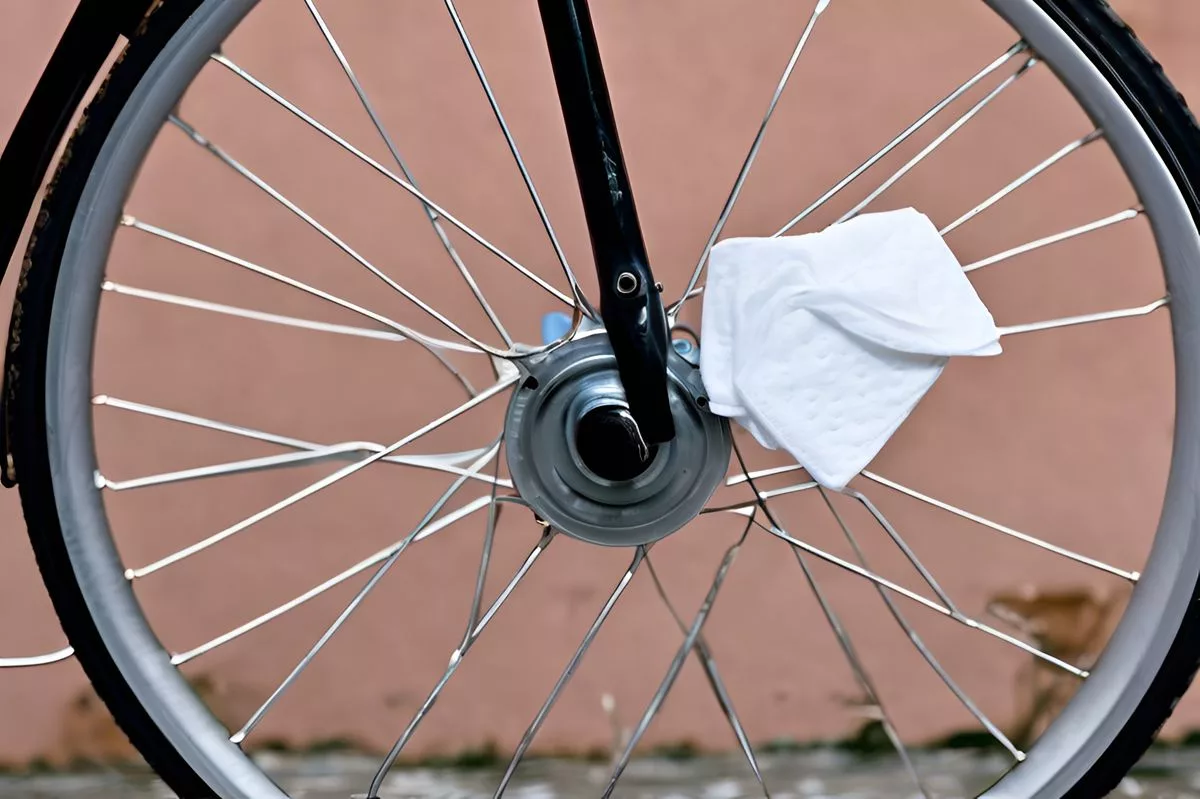A group called #AgainstPeriodPoverty teamed up with the City of Cape Town Cycle Team to bring attention to the issue of period poverty in underprivileged areas. The event, which involved a challenging 13-kilometer bike ride, was held at Strandfontein Sports Complex and required each participant to bring five packets of sanitary pads as an entry fee. The initiative aimed to show that menstrual hygiene products are a necessity, not a luxury, and that everyone should have access to them.
Tackling Menstrual Inequality: A Revolution on Wheels in Cape Town – learn how a philanthropic group, #AgainstPeriodPoverty, in collaboration with the City of Cape Town Cycle Team shed light on a persistent issue affecting women and girls in underprivileged areas – the unavailability of menstrual hygiene products.
The Advent of a Noble Cause
The usually tranquil Strandfontein Sports Complex in Cape Town, South Africa was pulsating with excitement on the morning of April 7, as it turned into a lively gathering spot for cyclists of diverse ages and fitness levels. They had congregated with a dual mission: to conquer a demanding 13-kilometre track and to advocate for an under-recognized cause – fighting against period poverty.
The initiative was orchestrated by a philanthropic group, #AgainstPeriodPoverty, in collaboration with the City of Cape Town Cycle Team. Through this charity event, they shed light on a persistent issue affecting women and girls in underprivileged areas – the unavailability of menstrual hygiene products. Period poverty, a silent yet formidable hindrance to education and job opportunities, continues to exacerbate existing inequalities.
The genesis of this event can be traced back to a regular day in 2019, when Lindsay Adams, a Westridge resident, learned about two girls in her community grappling with period poverty. The shocking realization that they were resorting to unsanitary alternatives like rags, newspaper, and toilet paper due to the absence of menstrual products moved her deeply. “The stories you hear,” she repeated, her voice wavering between disbelief and resolve. “I must take action. Not everyone has the privilege of these essentials. They’re not a luxury, but a necessity.”
A Unifying Ride for Change
Adams’ passionate call for action resonated powerfully at the Strandfontein Sports Complex on that Sunday. Cyclists, both local and from distant places, congregated to rally behind her cause. As a symbolic gesture, each participant was required to bring five packets of sanitary pads as an entry fee, underlining the event’s objective. No cash donations were requested.
The usually intense competitive spirit was replaced by a palpable sense of kinship. The group of approximately 100 cyclists set off on a journey that spoke volumes about their commitment to the cause. The route, which showcased the picturesque beauty of Cape Town, snaked along Baden Powell Drive through Old Strandfontein Road and into Spine via Witsands, culminating at the sports complex.
City law enforcement, safety, and security teams were at hand to ensure the seamless execution of the event, while spectators lined the route, their jubilant cheers providing an energy boost to the cyclists. Even non-cyclists contributed enthusiastically by depositing menstrual health products in collection bins situated at the sports complex.
Riding Against the Tide of Period Poverty
The ride signified more than an endurance challenge. It metaphorically represented a ride against the current of period poverty, a significant step towards a city where every woman and girl can access menstrual hygiene products, which are a necessity, not a luxury. The event’s triumph underscored the potency of collective action in instigating societal transformation, bearing testament to the resilient spirit of the Cape Town community.
Amidst a world riddled with inequalities, the Strandfontein Sports Complex served as a beacon of hope that day. Its metamorphosis from a typical complex to a platform challenging period poverty encapsulated the essence of how community involvement can drive meaningful change. This event wasn’t merely about charity, but empathy, recognizing that menstrual hygiene products, often overlooked, are a fundamental human right.
As the day wound down, the hum of the cyclists’ wheels against the tarmac subsided, but their message resonated powerfully: The battle against period poverty needed to be waged. Through Adams’ vision and the cyclists’ untiring efforts, the event offered a ray of hope for a future where period poverty could be relegated to the annals of history, where it truly belongs.
What is the #AgainstPeriodPoverty campaign?
AgainstPeriodPoverty is a philanthropic group that aims to tackle menstrual inequality and raise awareness about period poverty in underprivileged areas.
What was the objective of the bike ride event?
The bike ride event, organized by #AgainstPeriodPoverty in collaboration with the City of Cape Town Cycle Team, aimed to bring attention to the issue of period poverty in underprivileged areas and show that menstrual hygiene products are a necessity, not a luxury. Each participant was required to bring five packets of sanitary pads as an entry fee.
What is period poverty?
Period poverty is the lack of access to menstrual hygiene products, education, and facilities. It is a significant hindrance to education and job opportunities, especially for women and girls in underprivileged areas.
How does period poverty affect education and job opportunities?
Period poverty affects education and job opportunities by making it difficult for women and girls to attend school or work during their menstrual cycles. The unavailability of menstrual hygiene products and facilities often leads to absenteeism and a lack of productivity, perpetuating existing inequalities.
How did the bike ride event shed light on period poverty?
The bike ride event brought together cyclists of diverse ages and fitness levels to advocate for fighting against period poverty and rallied behind the cause. The event showcased the importance of menstrual hygiene products and the impact of collective action in instigating societal transformation.
How can community involvement drive meaningful change?
The bike ride event highlighted the potency of community involvement in driving meaningful change. By depositing menstrual health products in collection bins and participating in the event, the community showed empathy and recognized menstrual hygiene products as a fundamental human right.












